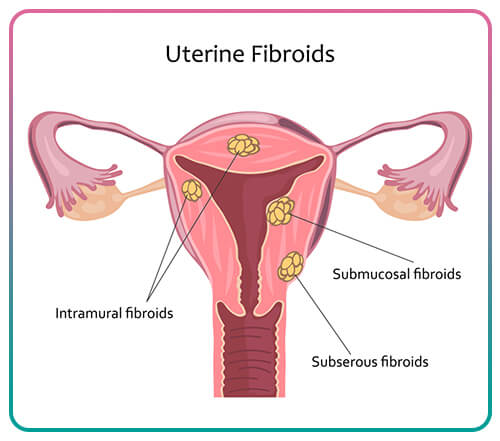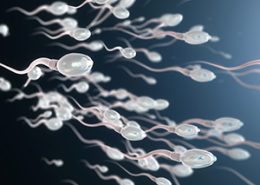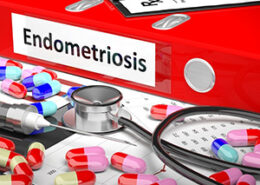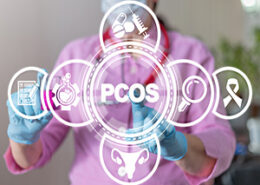What are the causes of Female Infertility?
A new life begins when a female egg is fertilized by a male sperm. The chance of a young couple getting pregnant is about 20% each month. If a couple fails to conceive after one year of trying to conceive, they need to see an infertility doctor and find out the cause of infertility. About 15% of couples experience infertility problems. Part of the fertility problems is due to women and part to men or a combination of both. As women get older, their fertility decreases, so an accurate and timely diagnosis of the causes of female infertility can help to effectively treat infertility problems in couples.

Common causes of female infertility
About one-third of infertility cases are caused by a problem in a woman, one-third of infertility problems are because of male infertility, and the other third occur due to a combination of male and female problems. There are several reasons for infertility in women. Ovulation disorders, fallopian tubes, structural problems of the uterus, hormonal disorders, old age, etc. can lead to infertility in women. Most women who have infertility problems can get pregnant by taking timely and appropriate treatment. Common causes of infertility in women include the following:
-
Ovulation Disorders:
Ovulation disorders are the most common cause of infertility in women, occurring in 40% of women with infertility problems. This problem occurs when the eggs do not mature or the ovaries are unable to release the mature eggs. Ovulation disorders are usually accompanied by symptoms such as irregular menstruation or cessation of menstruation, more or less normal bleeding during menstruation, etc.
Ovulation problems may be due to polycystic ovary syndrome (PCOS), hormonal disorders, and chronic illnesses such as diabetes, obesity, strenuous exercise, severe weight loss, or stress. In some cases, infertility due to ovulation disorders can be treated with medication and ovulation stimulation. But in other cases, your doctor may recommend assisted reproductive procedures such as IVF or ICSI for pregnancy.
-
Damage to the fallopian tubes:
Obstruction or damage to the fallopian tubes prevents sperm from reaching the egg. Endometriosis, pelvic inflammatory disease (PID), genital tract infection, history of deceased uterine surgery, history of sexually transmitted diseases such as chlamydia, history of obstruction of the fallopian tubes for contraception, and history of ectopic pregnancy are major causes of damage to the fallopian tubes. The first step in treating fallopian tube problems is surgery. The specialist doctor removes obstructions and injuries of the fallopian tubes by performing laparoscopic surgery. Women who are unable to conceive due to fallopian tube problems are more likely to have a normal pregnancy after surgery, depending on the location of the obstruction, the severity of the injury, and the cause.
If surgery is not effective or the tubes are so damaged that they do not repair, infertility treatments such as IVF and ICSI are recommended for pregnancy. The success rate of IVF in couples who are infertile due to tubal damage depends on the age and severity of the injury. In some cases, it may be necessary to remove the fallopian tubes before IVF to increase the chance of pregnancy. Learn more about factors affecting the success rate of IVF: What are the factors affecting IVF Success Rates?
-
Uterine abnormalities:
One of the causes of female infertility is the presence of structural abnormalities in the uterus. These problems can be congenital or caused by certain diseases. Fibroids, polyps, septum, unicorn uterus, etc. are types of abnormalities in the shape and structure of the uterus. In addition to infertility, uterine abnormalities can interfere with fetal implantation and cause recurrent miscarriages or premature births. Therefore, timely diagnosis and treatment of these abnormalities are very important. Learn more about recurrent miscarriage and pregnancy loss: Causes and Treatment for Recurrent Miscarriages

Uterine abnormalities can often be diagnosed by hysteroscopy, hysterosalpingography, or laparoscopy. Depending on the type of abnormality, the specialist doctor will use appropriate therapeutic or reconstructive surgeries to correct these abnormalities.
-
Damage to uterine tissue:
Damage to uterine tissue can make it difficult for the embryos to implant. These injuries are usually caused by uterine infections, miscarriage, and curettage.
-
Hormonal disorders:
The secretion of hormones such as FSH, LH, estrogen, progesterone, etc. affects the process of oocyte release from the ovaries. Therefore, hormonal disorders can change the ovulation pattern and cause infertility problems in women. Some of the hormonal disorders that affect the ovulation process are:
- Thyroid problems
- Pituitary gland problems
- Problems with the hypothalamus
- Adrenal problems
- Hyperprolactinemia
- Polycystic ovary syndrome
Hormonal disorders are usually accompanied by symptoms of fatigue, sudden weight gain or loss, acne, excessive hair growth or hair loss, skin changes, decreased or increased libido, and ovarian cysts. Hormonal disorders, in addition to disrupting the ovulation process, can also affect the uterus’ readiness for embryo implantation. Therefore, assessing hormonal problems is one of the important tests for women before IVF.
If hormonal disorders are the cause of infertility in women, a specialist doctor can usually control and treat these disorders by prescribing hormonal drugs. Learn more about fertility tests for women: Diagnostic Testing for Female Infertility
-
Old age:
A woman’s fertility rate decreases dramatically as she gets older. The number and quality of eggs drop rapidly after the age of 35, and ovarian function stops at about age 40. Fertility is possible for low-quality eggs, but fertilized eggs may not be able to implant properly in the uterus or grow well enough.
It should be noted that the decrease in the quality of eggs, in addition to reducing fertility, also increases the likelihood of chromosomal abnormalities in the embryo. Therefore, it is recommended that you do not delay your pregnancy until after the age of 35.
To increase your chances of getting pregnant over the age of 35, your doctor will usually recommend an IVF or ICSI procedure. In cases where the female’s eggs are not of the required quality, the doctor may recommend the use of donated eggs. Learn more about doing IVF with egg donation: Egg Donation in Iran

-
Premature menopause:
If ovarian function stops before the age of 40, it is called premature menopause. This complication occurs following a decrease in ovarian reserve. About one percent of women under the age of 40 have premature menopause. Symptoms of premature menopause include permanent interruptions of menstruation, hot flashes, vaginal dryness, pain during intercourse, sleep disorders, and stress. Although the main cause of premature menopause is not known, autoimmune diseases, Turner syndrome, fragile X syndrome, and chemotherapy can cause premature menopause. In women with premature menopause, the best way to get pregnant is to use a donated egg. Learn more about pregnancy after menopause: Is It Possible to Get Pregnant After Menopause?
-
Getting some diseases:
Infections can cause infertility in both women and men. Gonorrhea and chlamydia in women can lead to pelvic inflammatory disease, which can clog the fallopian tubes and cause scarring. Chronic cervical infections, such as the HPV virus, also reduce the quality of the cervical mucosa and make pregnancy more difficult.
Genital cancers are also a cause of female infertility. Chemotherapy and radiation therapy to treat other cancers also affect a woman’s fertility.
Having autoimmune disorders such as lupus, Hashimoto’s, or a variety of thyroiditis and rheumatoid arthritis may affect fertility. The exact reason for this is not clear, but autoimmune disorders appear to cause inflammation in the uterus and placenta and impair embryo implantation.
-
Inappropriate lifestyle
In many cases, the cause of infertility in women is an inappropriate lifestyle. Lifestyle has a great impact on the quality of eggs. Therefore, having a healthy and nutritious diet, getting enough sleep, avoiding smoking and alcohol, regular exercise, and stress management can increase the quality of eggs and prevent fertility problems in women. (Read more about the ways to improve egg quality before pregnancy or IVF)

Infertility treatment in women
An accurate and timely diagnosis of the causes of infertility in women can help effectively treat fertility problems in couples. In cases where infertility occurs in women due to hormonal disorders, the use of ovulation-stimulating drugs and hormones that stimulate the secretion of hormones can help solve fertility problems and increase the chances of pregnancy.
In some cases, drug treatment alone is not successful and in addition to drugs, assisted reproductive methods such as IVF, ICSI, donated eggs, etc. should be used for fertility treatment. If the uterus or fallopian tubes are damaged, medical and reconstructive surgeries such as laparoscopy and hysteroscopy can greatly help infertility treatment.
Treatment of female infertility in Iran
The best infertility treatment centers in Iran, using advanced equipment, offer various methods of infertility treatment such as IUI, IVF, ICSI, and donated eggs for high-quality infertility treatment in women. In addition to Iranian couples, foreign couples can also benefit from the services of the Best fertility treatment and IVF centers in Iran. Every year, many infertile couples from different countries such as Pakistan, Iraq, Oman, Kuwait, Bahrain, Azerbaijan, Afghanistan, Australia, etc. travel to Iran for infertility treatment.
To diagnose the causes of female infertility and treat it in the best infertility treatment centers in Iran, first, the necessary tests and examinations are performed by a specialist doctor. Then, based on the results of tests and examinations, the most suitable treatment method is suggested. Contact us for a free consultation with the best female infertility treatment specialists.










